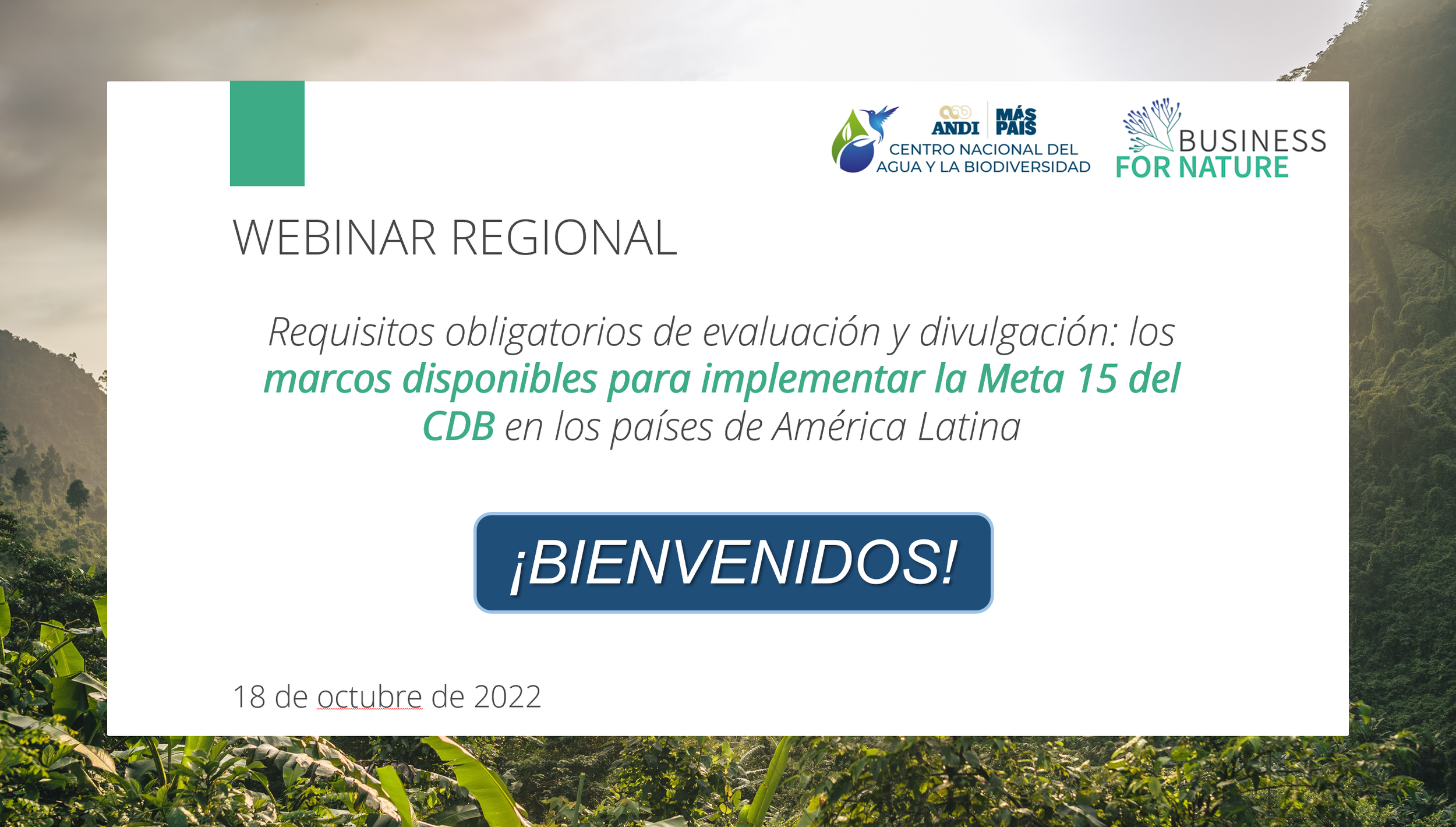Mandatory assessment and disclosure: How can governments implement the CBD Target 15 at national level?
Business for Nature is advocating for the adoption of an ambitious Target 15 under the Post-2020 Global Biodiversity Framework which is encouraging governments to adopt mandatory assessment and disclosure requirements on nature for all large and transnational business and financial institutions.
While this is backed by some countries, we need broader support to secure this level of ambition at COP15. One of the main concerns expressed by governments is on how mandatory requirements to assess and disclose impacts and dependencies on nature could be implemented at the national level.
During conversations with governments , we realized the lack of knowledge about existing frameworks such ase the Natural Capital Protocol that provides a Framework for companies to assess; and the Taskforce on Nature-related Financial Disclosure (TNFD) that is currently developing an integrated risk management and disclosure framework for organizations to disclose and act on evolving nature-related risks.
This is why, together with Capitals Coalition, TNFD and our national partners, Business for Nature organized three regional webinars for policymakers to demonstrate that mandatory assessment and disclosure requirements are needed and implementable at national level.
Latin America Webinar
18 October
Language: Spanish
Organized by the National Center of Water and Biodiversity at ANDI in Colombia, we had interesting interventions from a wide range of sectors including NGOs, business, government and finance. After a presentation from Capitals Coalition and TNFD, we heard interventions from Latin American companies including Superintendencia Financiera de Colombia, Ecopetrol and Grupo Nutresa, who shared their experiences in understanding and managing impacts on nature and the tools they have used in their journey.
We were pleased to hear directly from Valeria Cruz, Director of Environment at the Ministry of Foreign Affairs of Mexico and Laura Bermúdez, Advisor at the Ministry of Environment of Colombia on their positions on Target 15 on mandatory assessment and disclosure on nature. They expressed their priorities and concerns about adopting mandatory assessment and disclosure considering their national context and showed strong interest in continuing and enhancing discussion with the private sector around the implementation of Target 15.
“Mandatory requirements could be adopted for large and transnational companies. For SMEs, the process would have to be more gradual”
France and Francophone Africa Webinar
24 October
Language: French
The session was organized in collaboration with ORÉE and hosted more than 100 participants including many French-speaking CBD focal points. 11 high-level experts highlighted the importance of involving economic actors in the fight against biodiversity loss and its preservation.
The general message we heard across interventions was that it is essential that business is involved in consolidating a rigorous and ambitious Global Biodiversity Framework.
There are a range of approaches companies can useto credibly evaluate, prioritize, measure, avoid, reduce, restore, transform and disclose their impacts and dependencies on nature. Some of them were discussed in detail such as the TNFD and the Science-Based Targets for Nature.
“The final goal is to live in harmony with nature, by setting precise and measurable objectives. To fully understand the perspectives of the business community, I encourage you to discuss with your national delegations to refine target 15 of the GBF.”
Europe and North America Webinar
26 October
Language: English
The webinar started by setting the scene with a presentation of Business for Nature’s updated position on Target 15, on how mandatory assessment and disclosure of nature can accelerate the transition to a nature positive economy.
Experts from Capitals Coalition and TNFD outlined how existing frameworks can support governments with implementation. We heard about how the Natural Capital Protocol is supporting companies to assess their impacts and dependencies, as well as some concrete examples from real companies. We also heard how TNFD can support countries to shift global financial flows away from nature-negative outcomes and toward nature-positive outcomes.
Finally, Caroline van Leenders, Senior Advisor Sustainable Transitions from the Government of the Netherlands explained her perspective on the importance of having clear mandatory requirements and enhancing dialogue with the private sector to achieve a successful Post-2020 Framework.
“We need a system change. At the end of the day, the front runners cannot do the job alone, we need to change the rules and regulation of the economic and financial systems”




